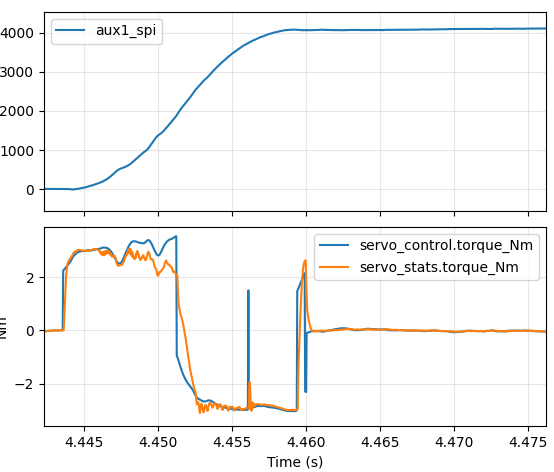Moteus performance analysis tool - CLI mode
I’ve previously written about the moteus performance analysis tool and how it can be used to evaluate different motor control systems for performance purposes. The tool described there is entirely a web based application that requires clicking around in the HTML interface in order to configure an analysis.
Now, there is newly added feature in the main moteus git repository that provides a command line interface (CLI) to the analysis kernel! This capability lets you run sweeps through various parameters or motor configurations much more easily than before, or even wrap the analysis in an optimization loop without resorting to browser based automation techniques.

